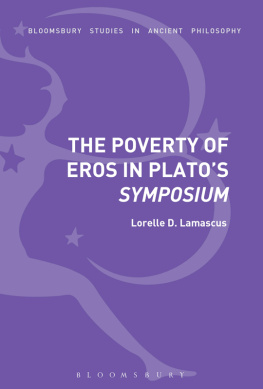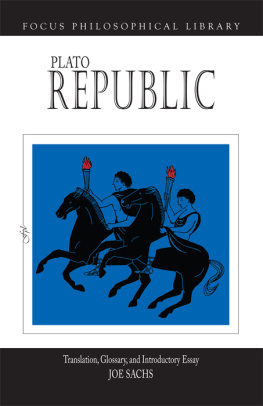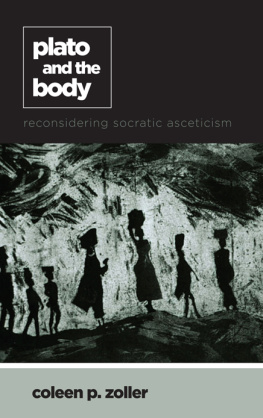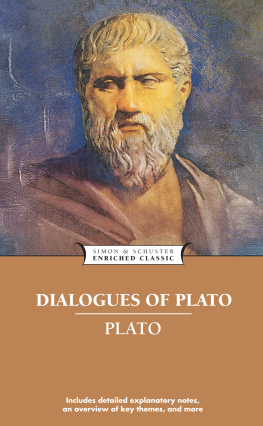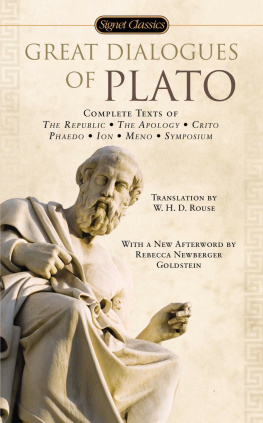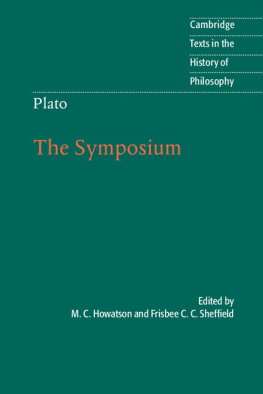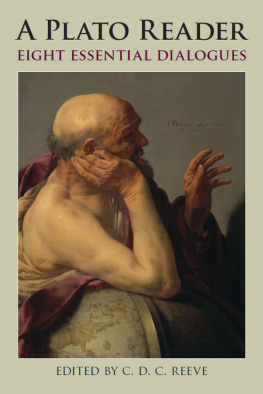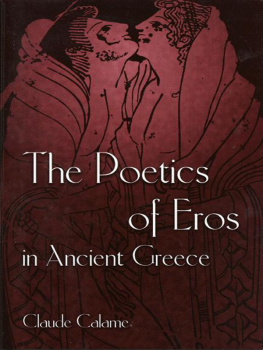Lamascus - The poverty of Eros in Plato’s Symposium
Here you can read online Lamascus - The poverty of Eros in Plato’s Symposium full text of the book (entire story) in english for free. Download pdf and epub, get meaning, cover and reviews about this ebook. year: 2016, publisher: Bloomsbury Academic, genre: Science. Description of the work, (preface) as well as reviews are available. Best literature library LitArk.com created for fans of good reading and offers a wide selection of genres:
Romance novel
Science fiction
Adventure
Detective
Science
History
Home and family
Prose
Art
Politics
Computer
Non-fiction
Religion
Business
Children
Humor
Choose a favorite category and find really read worthwhile books. Enjoy immersion in the world of imagination, feel the emotions of the characters or learn something new for yourself, make an fascinating discovery.
The poverty of Eros in Plato’s Symposium: summary, description and annotation
We offer to read an annotation, description, summary or preface (depends on what the author of the book "The poverty of Eros in Plato’s Symposium" wrote himself). If you haven't found the necessary information about the book — write in the comments, we will try to find it.
Lamascus: author's other books
Who wrote The poverty of Eros in Plato’s Symposium? Find out the surname, the name of the author of the book and a list of all author's works by series.
The poverty of Eros in Plato’s Symposium — read online for free the complete book (whole text) full work
Below is the text of the book, divided by pages. System saving the place of the last page read, allows you to conveniently read the book "The poverty of Eros in Plato’s Symposium" online for free, without having to search again every time where you left off. Put a bookmark, and you can go to the page where you finished reading at any time.
Font size:
Interval:
Bookmark:
The Poverty of Eros in
Platos Symposium
Bloomsbury Studies in Ancient Philosophy
Happiness and Greek Ethical Thought, M. Andrew Holowchak
The Ideas of Socrates, Matthew S. Linck
Platos Trial of Athens, Mark A. Ralkowski
Plotinus the Platonist, David J. Yount
The Socratic Method, Rebecca Bensen Cain
The Poverty of Eros in
Platos Symposium
Lorelle D. Lamascus
Bloomsbury Academic
An imprint of Bloomsbury Publishing Plc

For my family
I owe a debt of gratitude to many who have served as mentors, friends, and colleagues throughout my work on this manuscript and prior to it. I am grateful to Caitlin Gilson for her encouragement, friendship, and enthusiasm for my work. I am thankful also for the friendship and encouragement of Robert Boyd Skipper, Michael V. Dougherty, Andrew Brei, and Gail Fox Adams.
I am thankful to my teachers, who are never adequately thanked, and especially to the Dominicans who first taught me philosophy at the Catholic University of America. This manuscript originated as a dissertation in philosophy at Marquette University, and I am grateful to the members of my committee (Susanne Foster, James South, Andrew Tallon, and Theresa Tobin) for their guidance and to the university for a research fellowship that supported my work during that time. I am especially thankful to Susanne Foster and James South for the many conversations and comments that contributed to and improved the thought and writing of the dissertation. I am also thankful for the guidance of John D. Jones during the early stages of my dissertation work.
Finally, I would like to thank my family. I am grateful for the support and friendship of my sister over many long years; and I am grateful to my parents, whose experiences with poverty did not diminish their capacity to love. Their great appreciation for the beauty of the natural world, their creativity and imagination to transform the mundane into the extraordinary, and their deep commitment to doing the good all inform this manuscript.
Platos treatment of Eros in the Symposium presents Eros This assessment of Eros, however, does not resonate with Platos presentation of Eros in the Symposium or his other works in which Eros and reason are presented as properly in accord with one another. The moral life and the philosophical life alike depend on properly trained or directed Eros. Indeed, in the context of the Symposium, the philosopher and a mythical personification of Eros are portrayed as poor and homeless; what this poverty () expresses is an appropriate detachment from transient goods and an appropriate directing of Eros toward eternal and unchanging goods, participation in which is the end or goal of the moral and philosophical lives. The poverty of Eros does not indicate a lack that is egocentric or acquisitive, desiring to possess private goods for its own pleasure; rather the poverty of Eros describes a kind of asceticism or spiritual discipline that is requisite for the philosophical and moral life. As a way and not merely a lack, Eros becomes a certain disposition in the lover that leads the lover to the Good.
of love she subsequently describes. Egocentric accounts of Eros fail to note that the attitude or disposition of properly directed Eros not only precludes a grasping desire to possess or dominate the beloved, but necessitates an attitude of poverty toward objects and persons that loves them in allowing them to be what they are. I argue that the examination of the role that poverty plays in the understanding of Eros will show that such an account is unsatisfactory. This chapter concludes by noting that the role of poverty is essential to a proper and complete understanding of Eros and that the understanding of the relationship between poverty and Eros provides the foundation for understanding that Eros is not merely or even primarily acquisitive and egocentric. Rather, this relationship shows that Eros is better understood as an activity and a disposition.
examines the roles of theogony and myth in the Symposium as a whole in order to show that the theogonic account of Eros given by Diotima is crucial to understanding the account of Eros contained in her discourse. In short, the parentage of Eros is of paramount importance to understanding his nature and his works. I first consider what constitutes a myth and how myths function to reveal truths in ways that are neither literal nor, strictly speaking, allegorical. Rather, myth is a metaphorical expression of truth that informs the souls of its hearers. In spite of their mysterious means of conveying truth, myths and mythical speech play significant roles in Platos dialogues and are central to the Symposium, which is singular in taking for its theme a mythical figure. Mythological speech is woven throughout the speeches of the Symposium as each encomiast provides a theogony of Eros at the outset of his speech; this account of origins then informs the account of Eros that ensues. Based on the use of theogony and myth in the speeches throughout the Symposium, I argue that the theogony given by Diotima presents the nature of Eros in which she grounds her prescription for its proper use and work.
speech progresses. Of these three words that express the lack of Eros, , or poverty, stands out as holding special significance for understanding the lack of Eros because of its presence in the myth of Eross origins and owing to its thematic presence in the dialogue as a whole. The evidence of the dialogue and evidence from the Greek tradition prior to and contemporary with Plato, e.g., as present in Hesiod, Xenophon, and Aristophanes, shows that the concept of is associated with a disposition of moderation. This disposition is, I argue, fundamental to Platos conception of Eros.
examines the relationship between the lack of Eros and his intermediate nature. Proceeding from the articulation of Eros as involving lack, this chapter shows that the conception of Eros as deficient leads to the conceptions of Eros as intermediary, and as daimon. The initial discussion of lack leads to the exposition of Eros as necessarily relational, and further to Diotimas description of Eros as existing between various sets of opposites and thus as intermediate or . It is this intermediate status that identifies Eros as a daimon and the human being who understands the daimonic as the daimonic man. There is a traceable development, then, of the concept of the intermediate in Diotimas discourse, one that begins with the recognition of Eross lack, and derives from this lack a structure of Eros that expresses its metaphysical reality and the human psychological experience of this reality. This chapter articulates this development and shows that the consequences of Eross intermediacy are embodied in his portrayal as daimon, particularly in the manner in which he includes both and in his nature.
Given that Eros is an intermediate, the question arises as to the consequences of this status for the relationship of Eros to virtue. responds to this question by examining Diotimas remarks concerning the use () and work () of Eros. I argue that we should understand use not as an instrumental means to acquiring some object, but rather as the appropriate directing of an activity proper to an individual being toward its proper end. Eros has a proper use and a proper work, according to the kind of being to which he is joined. Eros, like the cosmos he inhabits, is subject to rational order, and though Eros animates the cosmos and causes all beings to strive toward participation in immortality, he causes this striving in accordance with the proper end of each kind of being. Consequently, his proper use for human beings is to lead them toward states of , and his proper work is manifest in the various kinds of procreation that afford them participation in immortality.
Next pageFont size:
Interval:
Bookmark:
Similar books «The poverty of Eros in Plato’s Symposium»
Look at similar books to The poverty of Eros in Plato’s Symposium. We have selected literature similar in name and meaning in the hope of providing readers with more options to find new, interesting, not yet read works.
Discussion, reviews of the book The poverty of Eros in Plato’s Symposium and just readers' own opinions. Leave your comments, write what you think about the work, its meaning or the main characters. Specify what exactly you liked and what you didn't like, and why you think so.

